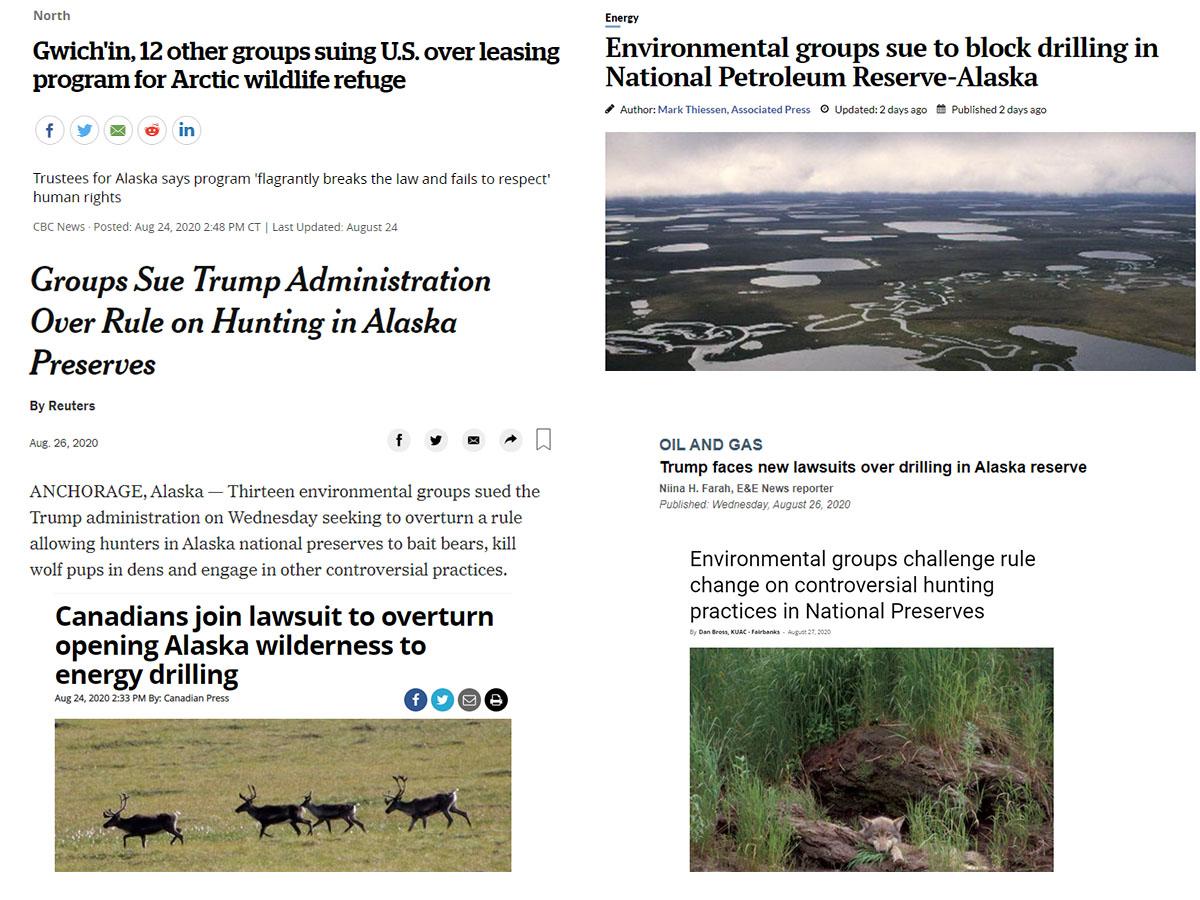
Our 2021 view of the lawsuits and issues
Things look far rosier now than a year ago when it comes to public lands management, clean air and water, protecting wildlife and tackling the climate crisis. The Biden administration came out of the gate with clear actions that make climate and environmental health a key component of every decision-making process across all departments.

His executive orders call for a review of federal actions and decisions in Alaska—such as approval of the leasing program in the Arctic National Wildlife Refuge and ConocoPhillips’ Willow project—and for a pause on oil and gas leasing on public lands and waters across the nation.
This bodes well for the communities bearing the consequences of industrial projects and the climate crisis, but the actions of the previous administration and our lawsuits calling out unlawful decisions and processes aren’t going away. In fact, the work has in many ways just begun.
We’re litigating these cases because agencies violated the law and their actions and decisions must be remedied. If an environmental review ignored or omitted science, failed to comply with legally required public processes, skipped or truncated required steps, and silenced frontline communities, then those agencies need to start over, gather science, and engage the public so that it has the necessary information to make decisions to protect human health and the environment.
Our job is to make sure they do, no matter whose name shows up on the legal documents. Here’s our issues.
Protecting Bristol Bay from the proposed Pebble mine
The Army Corps of Engineers denied a key permit for the proposed Pebble mine in November 2020, noting the failure of Pebble’s mitigation plan to address the severe degradation and destruction that would be caused by the project. To be clear, no mitigation plan can mend what Pebble would destroy.
The Pebble Partnership and the state of Alaska filed administrative appeals to the Army Corps in late January 2021. The Army Corps accepted Pebble’s appeal documents in early March and could take many months or longer to respond. The Corps did not accept the state’s appeal, however, because—as we noted in a letter to the Army Corps—the state is not an affected party.
To ensure the long-term health of Bristol Bay, the Environmental Protection Agency should stop the project and Congress should grant permanent protection to the region.
Keeping drilling out of the Arctic Refuge
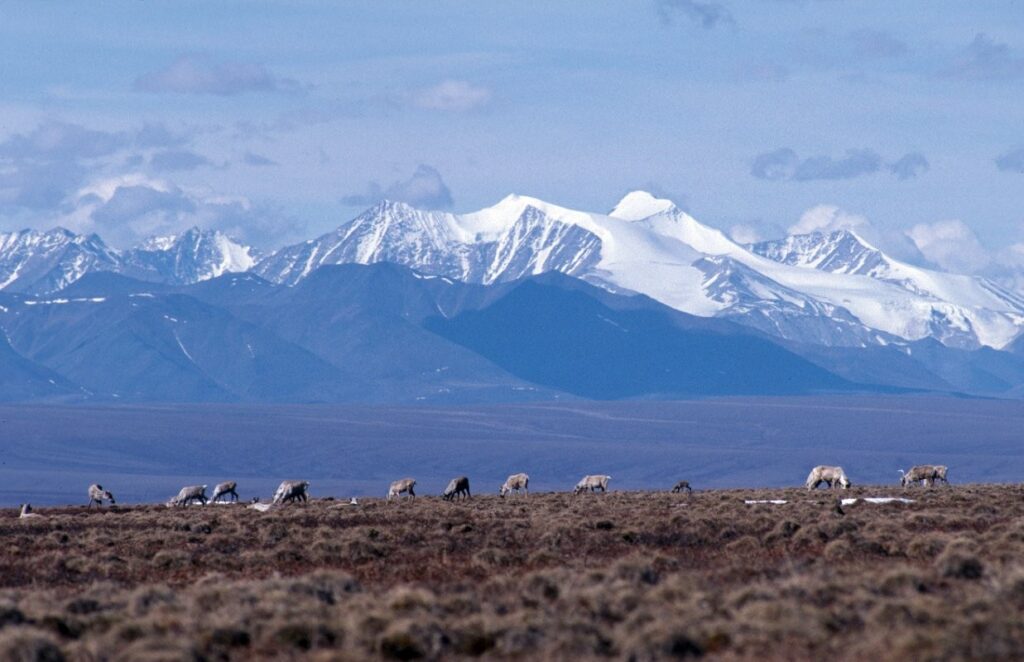
President Biden has committed to protecting sacred lands in the Arctic National Wildlife Refuge and we hope his administration follows through on that promise. A current stay, or pause, in the lawsuit we filed in August 2020 gives the administration time to decide how it intends to proceed. We should know more in April.
Meanwhile, a proposal for seismic exploration did not get approved since the U.S. Fish and Wildlife Service determined that the agency couldn’t move forward with assessing the request for an authorization for “incidental harassment” of polar bears in the time proposed.
This means thumper trucks and massive work camps will not damage the calving grounds of the Porcupine caribou this winter, and that we can join partners in working toward permanent protections.
Curtailing an oil and gas megaproject in the western Arctic
We got more good news in February when the Ninth Circuit Court of Appeals granted our motion for an emergency order stopping blasting, gravel mining, and road construction on the massive ConocoPhillips Willow project. Now we can focus on asserting the merits of our lawsuit in District Court.
When rubber stamping permits for the Willow project, the U.S. Bureau of Land Management acknowledged some of the project’s long-term harms to Arctic communities, yet required no meaningful measures to prevent or reduce them. The agency essentially pre-approved Willow without even seeing an application or essential details for conducting a legal environmental review. The Fish and Wildlife Service gave Willow a green light, despite its impacts on threatened polar bears.
The people of Nuiqsut in particular would bear the consequences of this project—which would bring an entirely new oil field and processing facility online—by living with increased pollution, incessant and loud blasting, and rapid industrialization that severely degrades the physical, mental, and sociocultural health of residents.
Of note, the Biden administration has also required that the incoming Interior Department Secretary Deb Haaland review its actions to approve Willow.
No new leasing in the western Arctic
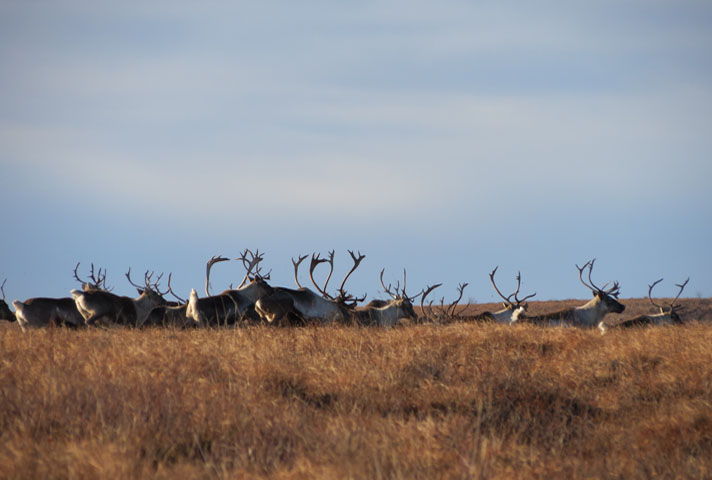
In June 2020, the Trump administration released a final environmental impact statement for a new management plan for the western Arctic, or National Petroleum Reserve-Alaska, that would slash protections and allow extraction in places essential to the health of Arctic communities.
We filed a lawsuit in August 2020 charging the Department of the Interior with violating the law when finalizing its environmental review and plan; the court has paused the litigation so the new administration has time to get up to speed.
We cannot speculate on what the administration will do with the proposed plan or the related lawsuit. However, any plan to expand oil and gas leasing in the region would not align with Biden administration goals on climate and biodiversity, protect its commitment to environmental justice, or with its pause on oil and gas leasing on public lands.
The gong show road to Ambler
The Alaska Industrial Development and Export Authority, a public corporation of the state of Alaska with seemingly little oversight, has been in the news of late for questionable use of COVID crisis funds. AIDEA has also been putting millions of dollars into behemoth projects that serve the profit interests of Outside corporations rather than the health of Alaska businesses and communities.
One of its pet projects includes the Ambler road. We took the Interior Department and other agencies to court in August for breaking multiple laws when approving AIDEA’s abysmal permit application for the 211-mile road through Gates of the Arctic National Preserve and one of the longest caribou migration paths in the world. The road would pollute and degrade land and waterways, and degrade areas used for food, culture, and the ways of life of local communities.
This is another project where industry interests—in this case AIDEA pandering to corporate mining companies—threw together a disastrous application with enormous information gaps to try to get it rammed through a hasty agency process before the end of Trump’s term.
AIDEA has an obligation to Alaskans and the public to come back with adequate and detailed applications for all federal agencies to review. We hope to see the Biden administration hold the applicant and process accountable to the law in the months to come.
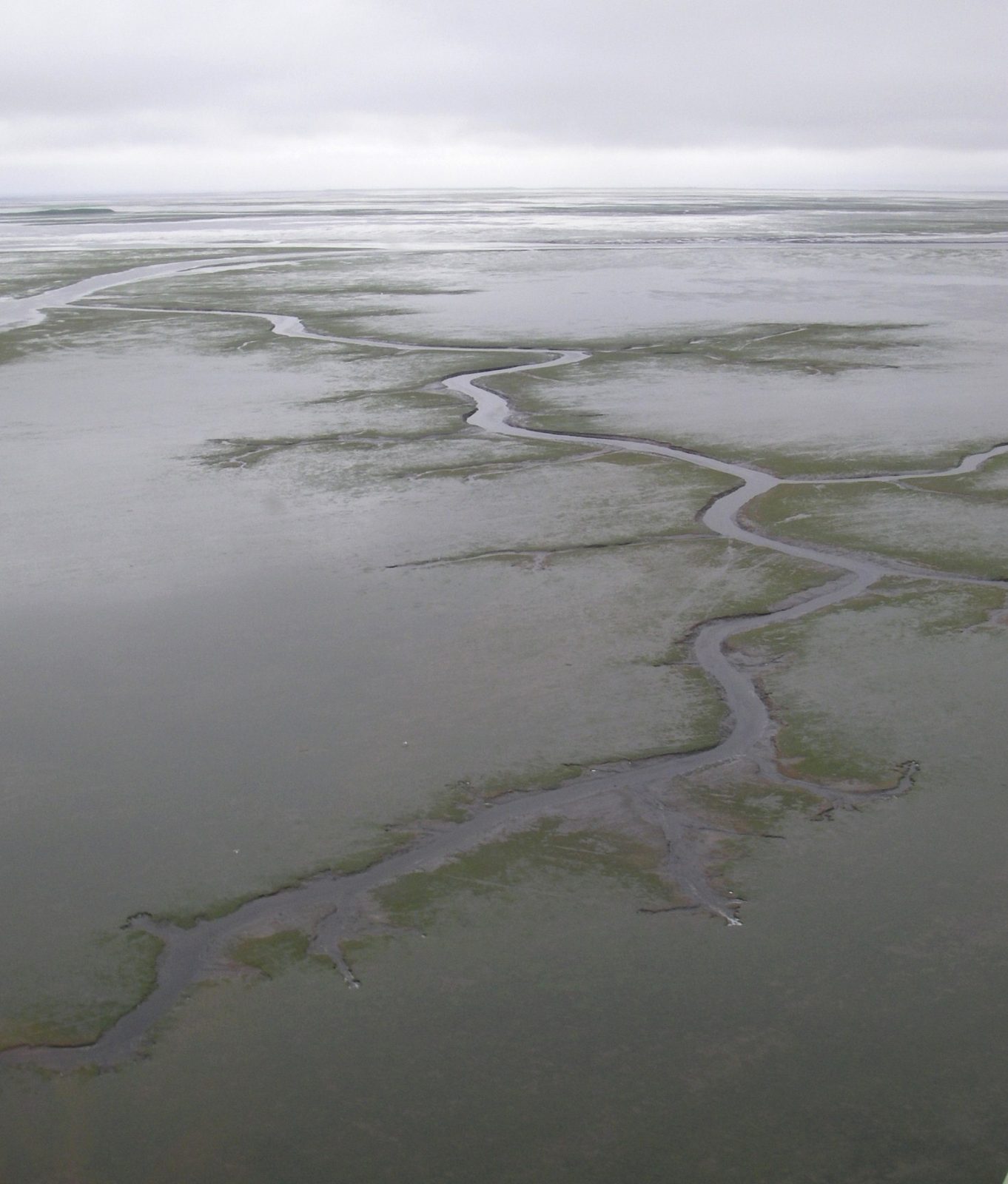
Keeping a road out of Izembek
We won two court cases in the past two years involving Interior Department land swaps aimed at putting a road through Wilderness in Izembek National Wildlife Refuge. Interior attempted both times to make illegal side deals to benefit commercial interests.
In June 2020, the District Court found, for the second time, that a land exchange between Interior and King Cove did not meet core legal requirements. Last week, the U.S. Department of Justice filed a brief in its appeal of that second case.
It’s important to understand that the effort to put a road through Izembek has for decades been founded in commercial interests, and that the latest exchange agreement did not include any restrictions on commercial use. Studies have shown that there are safe ways to provide emergency medical access to King Cove without putting a dangerous, damaging road that will be at times impassible through a protected Wilderness area.
Putting a road through the narrow isthmus that separates lagoons containing some of the largest eelgrass beds that sustain millions of birds, fish and marine mammals would endanger these animals and undermine the refuge system itself and the meaning of congressionally designated Wilderness.
Stopping brown bear baiting
In 2017, Trustees intervened to defend U.S. National Park Service and U.S. Fish and Wildlife Service rules prohibiting certain sport hunting practices authorized by the state of Alaska and aimed at decreasing the number of wolves, bears, and other predators in national preserves and the Kenai National Wildlife Refuge in Alaska.
We won the portion of the case focusing on the Kenai Refuge rule, with the court upholding a longstanding prohibition against brown bear baiting and the Refuge’s management of the Skilak Lake area to prioritize environmental education and non-consumptive wildlife uses. The state of Alaska and Safari Club appealed that decision to the Ninth Circuit and we anticipate briefing to be completed this summer.
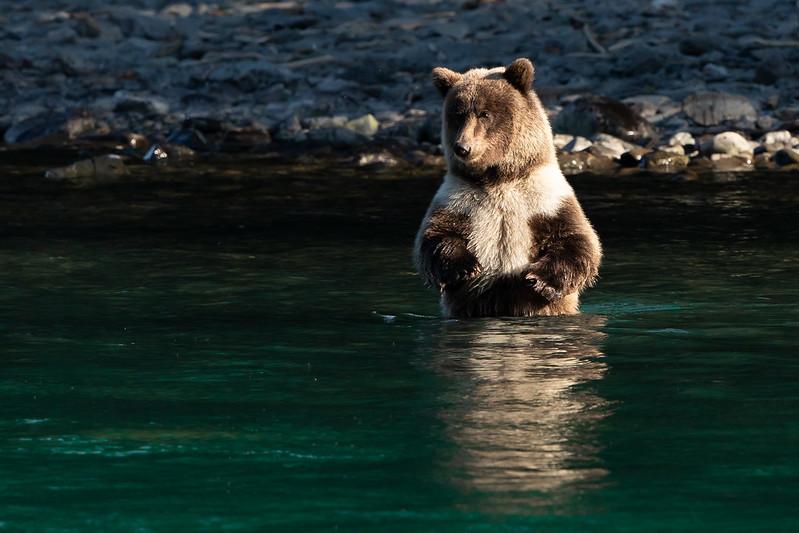
The Park Service piece of that litigation has been paused. We expect the case will either begin merits briefing or be dismissed this spring.
In the meantime, the Park Service adopted a rule in 2020 which allows sport hunters to kill brown bears over bait and wolves during the denning season in national preserves. We sued the Park Service over that illegal rule in August. We are in the early stages of briefing that case, and it is too early to tell how the change in administration will affect this litigation. Similarly, the Kenai Refuge proposed a rule during the Trump administration that would change course and allow brown bear baiting and eliminate a federal trapping permit requirement. That proposal has not yet been finalized. We hope that the Biden administration will decide to reaffirm the Kenai Refuge’s longstanding prohibition on baiting the vulnerable population of Kenai brown bears, and to maintain its key trapping permit requirement that protects wildlife and visitors to the Refuge.


